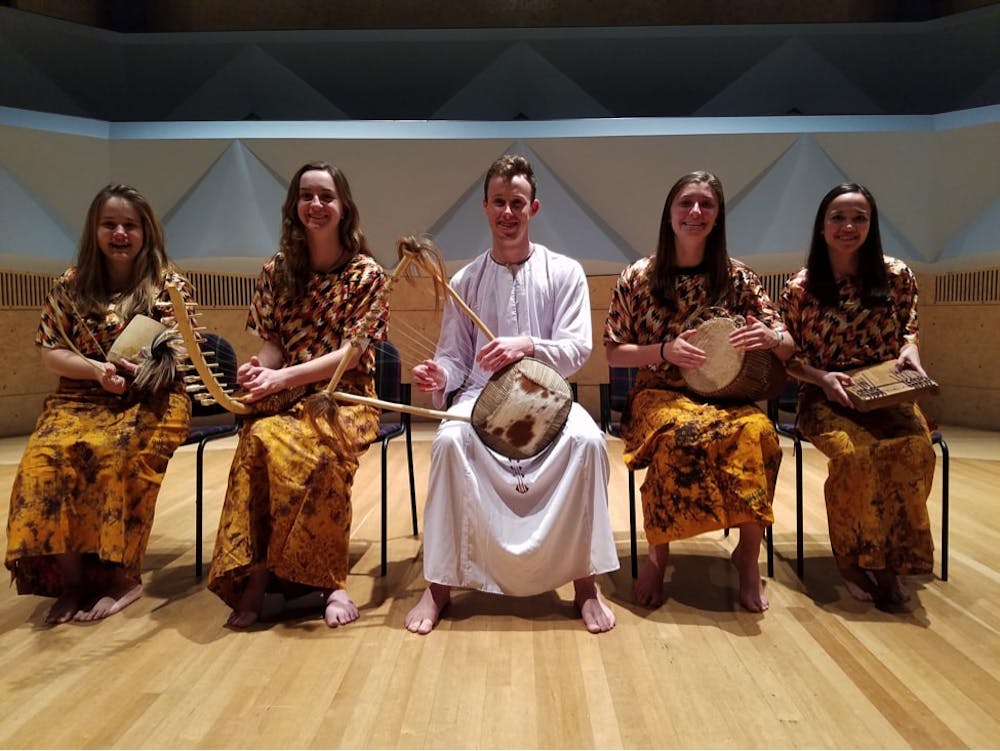Stop hibernating, and pick up the rhythm of spring! The Middlebury African Music and Dance Ensemble, directed by Assistant Professor of Music Damascus Kafumbe, might just be the event to bring you out of your winter lethargy. On Wednsday, April 26 at 8 p.m., students from the African Music and Dance Performance class will perform in a display that captures communal-based and interactive processes that serve as the backbone of many African societies. Beyond drumming-based practices, this concert will showcase the diversity and richness of African music with a spotlight on the dynamic nature of these traditions. The performance will take place in the Mahaney Center for the Arts’s Robinson Hall.
Kafumbe is a native of Uganda. He joined the College in 2011, and in addition to directing the Middlebury African Music and Dance Ensemble, he teaches ethnomusicology/world music courses and maintains the College’s Ugandan musical instrument collection. His African Music and Dance Performance class is both a performance course and an ensemble that focuses on East African music and dances. The traditions studied are primarily Ugandan, and throughout the course students learn to play and perform with various instruments, such as bow-harps, thumb-pianos, xylophones and more. “
The music and dances to which I introduce students are non-notational, so they have to learn them through observation, imitation, interaction and collaboration, among other pedagogical procedures that provide somewhat unconventional learning experiences,” Kafumbe said. “These experiences impact the students’ lives beyond the course. Students are able to transfer the skills — oral, aural, visual, creative, artistic, communication, collaborative and coordination — they learn and hone in the course to other areas of their lives.”
Though some students may expect this class to be easy, it is actually highly challenging, as it is designed to give students a rich, hands-on experience in an ensemble setting. Through immersion in East African dance and musical traditions, the course develops through mini lectures, in-class and out-ofclass rehearsals, guest lectures, a final concert and reflective writing.
Entering into the class with different backgrounds and levels of musical/dancing experiences, students face various challenges and difficulties working alone and in an ensemble.
“Students’ varied musical and performance backgrounds inevitably cause tension,” Kafumbe said. “Sometimes, less advanced students might feel overstretched while more advanced students might feel less challenged by the course material. But this forces the students to figure out how they can work together toward their common goal: to perform as an ensemble.”
Featuring guest performers, including faculty, students who are outside of the course and Kafumbe’s family members, the program will include an original composition inspired by the current political environment. Performers will tell many stories that contextualize and interpret the music and dances that they perform.
Performing Arts SpotLight: African Music and Dance

Comments



